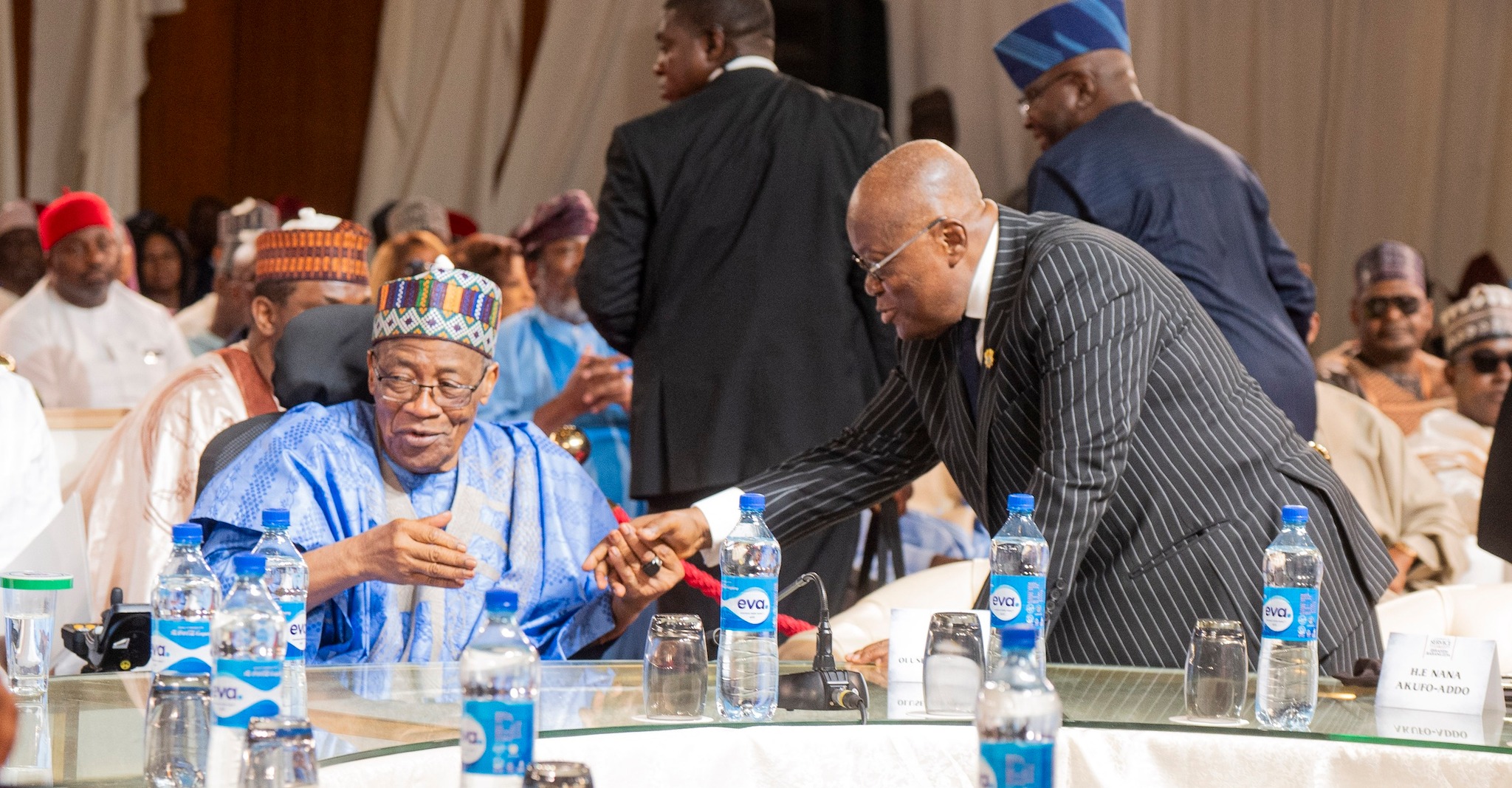Headlines
Babangida Claims Abacha Played Key Role in June 12 Annulment, Denies Ultimate Authority

Former Nigerian leader Ibrahim Babangida has revealed that Sani Abacha played a significant role in the annulment of the June 12, 1993, election, distancing himself from full responsibility.
Former military president Ibrahim Babangida has at last spoken out about his regime’s annulment of the controversial June 12, 1993 presidential election.
Chief MKO Abiola of the Social Democratic Party (SDP) won the election, which is widely considered Nigeria’s most free and fair.
Nonetheless, its cancellation threw the nation into political chaos, with many accusing Babangida of depriving Nigerians of their democratic decision.
In his recently published autobiography, “A Journey in Service,” unveiled in Abuja on Thursday, Babangida disclosed startling details about the annulment.
According to TheCable, the former leader stated that he was in Katsina when news of the annulment emerged—without his awareness or consent.
Babangida claimed that the action was orchestrated by influential elements within the military, headed by then Chief of Defence Staff Sani Abacha, who eventually seized power and governed as a military head of state.
Babangida, who had officially announced the annulment in a national broadcast on June 24, 1993, asserted that by August of that year Abacha had gained too much power within the divided military. This made it nearly impossible to remove him after Babangida stepped down from office.
Abacha strengthened his hold on power by overthrowing Ernest Shonekan’s Interim National Government in November 1993 and subsequently detaining Abiola for proclaiming himself president.
“Abacha Headed the Opposition to June 12 Forces”
Babangida remembers instructing Professor Humphrey Nwosu, the chairman of the National Electoral Commission, to carry on with the elections despite increasing tensions.
He instructed the electoral commission leader to proceed with the elections by calling a world press conference from their office and announcing that they will take place as scheduled tomorrow.
However, merely four days later, Nwosu unexpectedly halted the announcement of results—an action that Babangida claimed was executed without his prior knowledge or approval.
On June 16, NEC Chairman Professor Nwosu unexpectedly announced the suspension of the June 12 election results “until further notice,” without informing or obtaining prior approval from me.
“I immediately recognized that certain fifth columnists were actively involved, and it was crucial to proceed with extra caution. Even following the suspension of announcing the results, ABN secured another ‘unexpected’ court order from Justice Saleh’s court in Abuja, preventing the release of the election outcomes,” he added.
On June 23, 1993, Babangida traveled from Abuja to Katsina to offer his condolences to the Yar’Adua family on the death of their patriarch, Musa Yar’Adua. Musa was a former minister for Lagos affairs and the father of late President Umaru Yar’Adua.
He mentioned, “After the funeral concluded and I was preparing to depart, news reached me that the June 12 elections had been annulled.”
Even more astonishing was the scope of the annulment, as it halted all court proceedings related to the June 12 elections, repealed all decrees concerning the Transition, and even suspended NEC!
The statement was presented in a bizarrely unprofessional manner. Admiral Augustus Aikhomu’s press secretary, Nduka Irabor, delivered a brief and clumsily phrased announcement from a scrap of paper that lacked both the presidential seal and official government letterhead, declaring the annulment of the June 12 presidential elections. I found it alarming and horrifying.
Babangida acknowledged that although annulment was considered among several options, it was never intended to be carried out in the way it ultimately happened.
Certainly! Here’s a rewritten version: “Indeed, amid the stalemate after halting the results announcement, there was some casual mention of annulment potentially leading to new elections. However, annulment was just one part of several possible options.”
However, having an announcement made abruptly without my consent was, to say the least, alarming. I recall exclaiming: “These devious ‘inside’ forces against the elections have outmaneuvered me!” Later on, I discovered that General Sani Abacha led these ‘forces,’ which ultimately annulled the elections.
In that moment, I realized I was trapped between “a rock and a hard place.” From then on, the events surrounding the June 12 elections turned in a painful direction for which, as I’ll explain later, I unfortunately bear responsibility.
